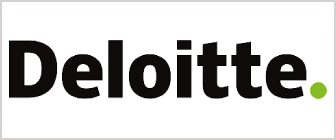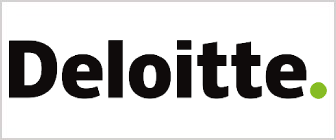Interview with Gloria Boye-Doku, Africa Tax & Legal Partner, Global Employer Services (Ghana), Deloitte Africa
1. What is the most significant change to your region/jurisdiction’s tax legislation or regulations in the past 12 months?
The post-COVID-19 pandemic period in Ghana has been challenging for the government and the tax authority, Ghana Revenue Authority (GRA). The government instituted various strategies and policies to get the country back on track. In 2019, the GRA presented its third strategic plan for 2019–2021, outlining plans to leverage information and communication technology to enhance the tax administration in Ghana. During the 2019 Tax and Good Corporate Week, the GRA launched the “Ghana Revenue Authority’s Integrated Tax Application Preparation System (iTaPS)”. The iTaPS system is designed to enhance revenue mobilization for convenience and simplicity in the tax administration. In 2021, the Ghana.gov platform — as a one-stop shop for all services and payments to government agencies, including the GRA — was launched.
Effective from 1 April 2022, the GRA has operationalized Section 16 of the Value Added Tax (VAT) Act by rolling out a digital infrastructure which requires non-resident suppliers of electronically supplied services to register and account for VAT in Ghana. This provision has been in the Act since 2014 but was not implemented due to the fact that Ghana lacked a digital infrastructure.
Ghana’s 2022 national budget also made numerous tax proposals, such as the introduction of an electronic transaction levy (e-levy). The legislative backing for the collection and administration of the e-levy was passed into law in March 2022 after several consultations within parliament and with the general public. The law became effective on 1 May 2022, charging the sender (rather than beneficiary) an e-levy at 1.5% on all electronic transactions, other than specifically excluded or exempted transactions. Also, the parliament of Ghana passed the Penalty and Interest Waiver Act (Amendment), 2021 (Act 1073) into law to extend a tax amnesty in effect since 2021. The program covers interest and penalties accrued to 31 December 2020, which expired on 31 December 2022.
2. What has been the most significant impact of that change?
The digitalization drive, in the tax administration regime, has brought much needed convenience to taxpayers. The GRA does not currently accept manual tax return filings and payments to the GRA must be made directly to licensed commercial banks. Taxpayers can now file taxes online and make payments without visiting the GRA offices. This improvement provides the necessary revenue assurance to the GRA as it eliminates the risks associated with the handling and accounting for tax revenue collected in cash.
With effect from 1 April 2022, consumers of electronic commerce and digital services provided by non-resident suppliers are now required to pay VAT (at an effective rate of 19.25%) on these services. Therefore, for non-business consumers, this has resulted in an almost 20% increase in the price of buying digital services from non-resident suppliers.
Preliminary data from the Bank of Ghana showed a dip in the growth trend of mobile money services, by volume and value, with the introduction of the e-levy. Theis e-levy is still subject to debate by the general public, and recent studies suggest that there is a potential to slow down the drive to make a digital financial solution accessible to the population of Ghana that do not have bank accounts the underserved.
The extension of the tax amnesty program is expected to bring in additional tax revenue, and parliament are estimating that the tax revenue to be realized from the extension of the tax amnesty program will be in the region of GHS500 million (US$50 million).
3. How do you anticipate that change impacting your work and the market moving forwards?
These changes create opportunities in the market for tax advisors and specialists. Taxpayers will require professional representation and guidance for integrating these changes into existing compliance systems. As an advisor, I proactively discuss these changes (and potential future changes) with my clients and provide guidance about the ways Deloitte can assist them to better navigate the ever-changing tax and regulatory landscape.
With the revenue authority’s use of technology to underpin its tax administration, Deloitte is well positioned to leverage its tax technology team to support clients with system changes and digital transformation across the board, together with providing training and guidance to help professionals gain relevant knowledge in certain critical information technology tools.
4. How has this changed the way you offer tax advice?
Deloitte anticipated this move towards a digital revenue authority and taxes on digital services and has invested in the right technology tools and/or platforms. The Deloitte teams, across the Africa Tax & Legal practice, are up to date with the digitalization drive by the government and are knowledgeable about future technologies and will continue to train its professionals in such new technologies.
5. What potential other legislative/regulatory changes are on the horizon, or that came into law, that you think will have a big impact on your region/jurisdiction?
The parliament of Ghana passed the Tax Exemptions Act in July 2022, which came into law at the end of 2022. The objective of this Tax Act is to standardize the tax exemptions regime in Ghana.
Once fully implemented, and clear guidelines or regulations published/issued, the legislation will establish a framework within which qualifying investments can be considered for tax exemptions, especially to foreign investors, who may benefit from some of these exemptions.
6. What are the potential outcomes that might occur if those changes are implemented?
The Tax Exemptions Act, once fully implemented, will provide a clear criterion for granting tax exemptions, procedures for the administration of tax exemptions, and a framework for reporting, monitoring, and enforcement of tax exemptions. Over and above providing clarity for taxpayers who seek to apply for specific tax exemptions, it is estimated that standardization of the tax exemptions regime through the Tax Exemptions Act will save the government GHS 500 million (US$50 million).
7. Do you think that change will have a positive effect on both your practice and the wider regional/jurisdictional market?
Given our expectation that the Tax Exemptions Act will provide certainty and clarity on the tax exemption application process, Deloitte’s expectation is that it will be able to bring clarity to its clients about the tax exemption process. It is anticipated that these changes will have a positive effect for Deloitte Ghana and the wider Deloitte Africa firm as the expectation is that many more foreign investors will make inquiries about potential impact of the new legal exemption framework with respect to their investments.
From a broader viewpoint, the Tax Exemptions Act will make Ghana a competitive destination for foreign investment as legal guarantees would be provided for under the investment promotion and tax exemption legislation. The expectation is for foreign investment inquiries to increase over the medium to long term as a result of this Tax Exemptions Act and other investor-friendly legislation currently in force.
8. Are there any regulatory/legislative changes you believe should be implemented in your region/jurisdiction?
The government hinted at a comprehensive review of the investment environment in Ghana. A particularly important legislation Deloitte expects to be reviewed is the Ghana Investment Promotion Centre Act, 2013 (Act 865), to align the legislation with the changing global investment landscape.
9. How do you believe those changes would help improve the tax landscape in your market?
The review of the domestic investment promotion legislation to align with global trends should improve the ease of doing business in Ghana. Such legislation has the potential to increase foreign direct investment and as a consequent increase the demand for professional tax advisory services in respect of these in-bound investments.
10. How are issues surrounding the taxation of the digital economy affecting your work?
The size and expansion of the digital economy is enormous. The top 10 public corporations by market capitalization currently include seven technology titans. An international discussion on whether tax laws are appropriate for the situation has been triggered by globalization, digitization, and worries about corporate tax evasion. While the Organisation for Economic Co-operation and Development (OECD) works to achieve global agreement on the subject, the topic of taxing the digital economy is becoming increasingly prominent on policy agendas across the world. The hurdles developing economies must overcome include a lack of access to the most recent technology, advanced telecommunications infrastructure, low computer literacy, and various cultural and socio-economic barriers.
At a domestic level, there is a potential period of uncertainty due to the lack of published guidelines, practice notes, or commentaries on the tax treatments of emerging digital economies. This may result in reliance on practices and laws of other jurisdictions, such as the European Union (EU), in understanding the tax treatment of such economies. An example of this is the concept of human intervention in the making of electronically supplied services, of which there is no mention in the draft practice notes being considered by the GRA.
A case in point is the recent implementation of VAT on electronic commerce supplies in Ghana as six months into the implementation, the GRA has not yet published guidelines or commentaries on the legislative application. Therefore, here are no clear provisions in the tax laws on taxation of companies that are solely doing business over the internet without creating a permanent establishment in Ghana. Ghana has provided a non-resident portal for such companies to register and account for VAT. However, VAT is an indirect tax, and the impact is on the consumers in Ghana; it is not a tax imposed on the income of these non-resident companies. It is difficult to provide tax advice on these activities since local laws are not clear on the taxation of a digital economy. Over the years, Deloitte has been advising some clients based on the OECD principles, even though Ghana is not a signatory to these models/principles.
11. How would you describe the tax authorities’ approach in your region/jurisdiction?
The GRA’s approach to revenue mobilization and tax administration, in general, can be described as cooperative.
Recently, the overall tax administration system has become more taxpayer-oriented, and this has had a direct impact on revenue mobilization; GRA has exceeded its revenue targets in recent years.
This document has been prepared solely for the purpose of publishing in the 2023
ITR World Tax Guide and may not be used for any other purpose. This document
and its contents may not be reproduced, redistributed or passed on, directly or
indirectly, to any other person in whole or in part without Deloitte’s prior written consent.
Deloitte refers to one or more of Deloitte Touche Tohmatsu Limited
(“DTTL”), its global network of member firms, and their related
entities (collectively, the “Deloitte organization”). DTTL (also referred
to as “Deloitte Global”) and each of its member firms and related
entities are legally separate and independent entities, which cannot
obligate or bind each other in respect of third parties. DTTL and each
DTTL member firm and related entity is liable only for its own acts
and omissions, and not those of each other. DTTL does not provide
services to clients. Please see www.deloitte.com/about to learn more.
This communication contains general information only, and none of
Deloitte Touche Tohmatsu Limited (“DTTL”), its global network of
member firms or their related entities (collectively, the “Deloitte
organization”) is, by means of this communication, rendering
professional advice or services. Before making any decision or taking
any action that may affect your finances or your business, you should
consult a qualified professional adviser.
No representations, warranties or undertakings (express or implied)
are given as to the accuracy or completeness of the information in
this communication, and none of DTTL, its member firms, related
entities, employees or agents shall be liable or responsible for any
loss or damage whatsoever arising directly or indirectly in connection
with any person relying on this communication. DTTL and each of its
member firms, and their related entities, are legally separate and
independent entities.
© 2022. For information, contact Deloitte Global.


